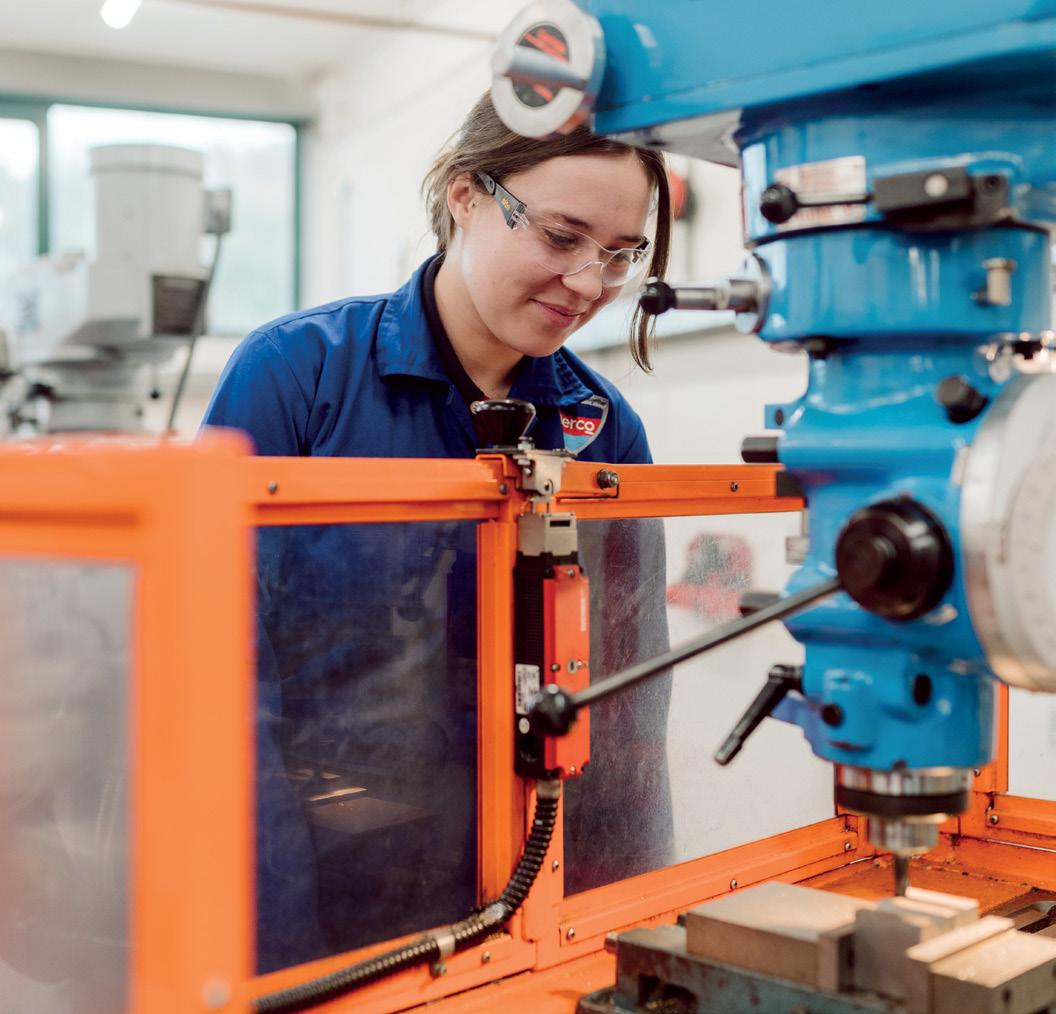
1 minute read
LEVEL UP WITH WORK EXPERIENCE
Whatever you choose to study, you’ll be combining your time learning in college with gaining practical experience in real-life industry environments. Work experience gives you a vital opportunity to not only gain valuable skills and knowledge, but also to build your network and prepare yourself for a promising future.
WHY DO WORK EXPERIENCE?
Advertisement
LEARN BY DOING: Apply what you’ve learned in real life!
BOOST YOUR JOB CHANCES: Gain skills employers want.
MAKE VALUABLE CONNECTIONS: Meet people who can help your career.
GAIN CONFIDENCE:
Get hands-on experience and feel capable.
GET READY FOR WORK: Connect what you learn with real jobs.
DISCOVER WORK LIFE: Learn what it’s really like in different industries.
HOW MUCH WORK EXPERIENCE WILL I DO?
FULL-TIME STUDY PROGRAMME:
All of our courses have a work experience element, providing work competencies and specialist knowledge to help you gain insight into possible future careers. Some programmes also offer 350 hours of industry placement.
APPRENTICESHIP:
You’ll spend 80% of your time working in a real job with a real salary. The remaining 20% of your time will be spent in college, learning skills and knowledge related to your work.
T-LEVEL:
You’ll spend 80% of your time at college in the classroom, with the remaining 20% working in a valuable industry placement.
GET CAREER READY WITH #THECAREERCOLLEGE
Combining work experience with your qualification can take you further!

Getting first-hand exposure to real-world workplace challenges, dynamics and expectations, you’ll develop a practical and professional attitude that cannot be fully replicated in a classroom setting.
Skilled
You’ll gain all the relevant industry skills and knowledge to hit the ground running in your chosen career.
Professional
You’ll be career ready, with all the additional soft skills you’ll need to be a valuable member of any team in the workplace.
Connected
You’ll establish meaningful relationships that may prove beneficial in your future career.


